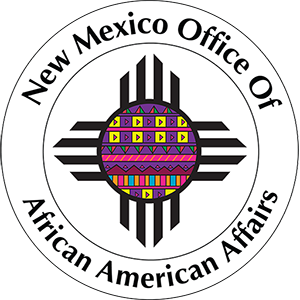The Matriarch: Ruby Duncan
Women’s History Month
The word matriarch commands respect. The first time I heard the term “matriarch” it was about Black women. I understood early on, that Black women have the capacity and capability to lead a group for the common good. In the African traditions amongst various tribes, a matrilineal society structure persists, like within the Ashanti tribe of the Man people, the largest tribe in Ghana. (4) In these societies, the leadership lies with the elder women of the tribe.
A Matriarch is a woman who rules or dominates a family, group, or state. (2) In celebration of Women’s History Month, OAAA wants to bring attention to Ms. Ruby Duncan, the first Black/African American women president of the Neveda Welfare Rights Organization.
Ruby Duncan led the Welfare Rights Movement in Las Vegas, Nevada in the late 1960s. (3) Ruby moved to Las Vegas, Nevada in 1952 and begun working as a hotel maid. Hurt on the job and unable to work, Ruby was injured so severely that she could only work sitting down.
Ruby reached out to the Navada welfare program for services, letting them know she could work if it was a job sitting down. Ruby was referred to a sewing class where she met other mothers on welfare. The mothers began sharing the stories of their experiences with welfare and formed the Nevada Welfare Rights Organization (NWRO). (1)
Ruby was elected the president of the newly formed NWRO in the late 1960s. (1) During the 1970s welfare recipients in the state of Nevada were reduced by 75 percent, and families were not able to make ends meet. White, Latino, and Black women began to organize to address the injustices throughout the State of Nevada’s welfare program.
The Welfare system administration gave authority to their workers to visit and inspect homes in the middle of the night. These assigned welfare workers would terminate benefits of welfare recipients if they found anything indicating a man was living or possibly living in the home. If a family had both parents, then the husband had to leave home for the family to receive help. (1) This practice of visiting homes in the middle of the night often resulted in separating family units.
Ruby and the NWRO fought against the unjust actions of the Nevada welfare system by protesting down the Las Vegas strip thereby interfering with the gambling patrons. The group partnered with the Nation Welfare Rights Organization and gained national attention and tapped into their resources to fight injustice. Over 1,500 people and celebrities marched down the Las Vegas strip. (1) The groups action made a negative impact on the state’s money made from taxation on gambling, forcing the State of Nevada to listen to their concerns.
In 1968 the Supreme Court ended the home inspections ruling that aid to families with dependent children could not be withheld due to the presence of a “substitute father” in the house. (1) The fight was not over.
The State of Nevada during this time was the only state that had not accepted the Federal Government Food Stamp Program. (1) Nevertheless, Ruby and the NWRO continued to protest and lobby for the State of Nevada to implement the Food Stamp Program. One of the most notable protests was on February 8, 1972 when Ruby and NWRO took two busloads of children to eat at the Palms restaurant and refused to pay the bill. When Ruby was confronted about paying the bill, she told them to charge it to the governor. (1) Ruby was arrested, but the movement continued.
With the continued pressure from protestors in 1973 the State of Nevada finally began offering food stamps to welfare recipients. Soon after, Ruby co-founded a one-stop shopping for community services called “Operation Life.” (1) Operation Life became the administrators of the welfare services in the community so that their community members could come to them for public assistance. These groups of women were making changes for their community.
The organization was targeted and accused of welfare fraud – forcing them to close for six weeks. The subsequent investigation resulted in a small disparity of 4 cents, and “Operation Life” was opened back up. (1)
These women provided a safe space for obtaining services. Ruby Duncan and the Nevada Welfare Movement in Las Vegas (NWRO) brought in the Federal Food Stamps Program and the Special Supplemental Nutrition Program for Women Infants and Children (WIC) to poor people throughout the state. (1)
In conclusion, there is power in the people. Let us unify. We see the problems on the ground and talk to each other about how to solve them. The first step is coming together. The recently released documentary “Storming Caesars Palace” covers the extraordinary story of Ruby Duncan and the Welfare Rights Movement in Las Vegas, Nevada.
We celebrate you Ruby Duncan and the women of the Welfare Rights Movement. The documentary “Storming Caesars Palace” is shown on PBS. The link will tell you me. Happy Women’s History Month!
